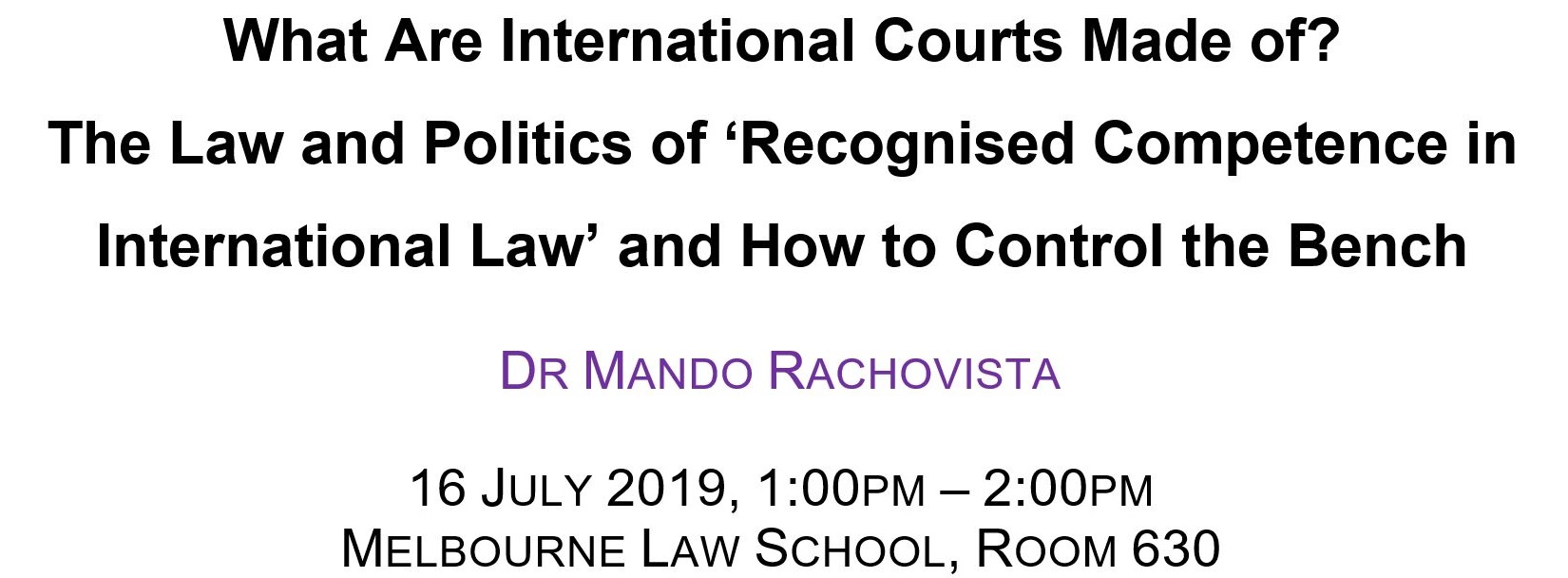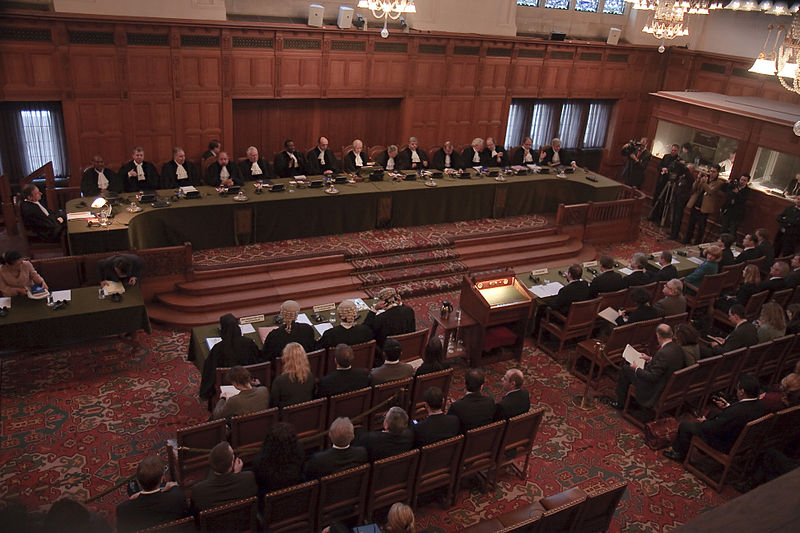
The quality of the membership of an international court is an indiscreet matter to address. The ‘sensitivity and secrecy’ surrounding aspects of the nomination and (s)election of judges is the reason that legal scholarship infrequently addresses such aspects. However, the composition of a court and, in particular, the competence of judges is of central significance to enhancing confidence in the courts’ role within international law and international affairs.

This presentation explores the meaning and (formal or informal) evolution of the statutory requirement ‘recognised competence in international law’ in judicial and State practice. The discussion compares across many international courts and (quasi)adjudicative bodies, namely the ICJ, the PCA Specialised Panels, the ITLOS, the ICC, the ICSID Panels, the WTO Panels and AB, the ECtHR, the African Court of Human and Peoples’ Rights (ACtHPR) and the future African Court of Justice and Human Rights, and the Caribbean Court of Justice.
The presentation’s main argument is that the recognised competence in international law has evolved from a craft to be learned up to an epistemic and disciplinary category of expertise encapsulating today both the specialisation of international law and the pressing need for the intellectual quality to retain an overall grasp of international law. These two simultaneous forces – specialisation and the ability to “see the forest for the trees” – serve different needs in judicial dispute settlement and they are also used by States to control the bench. Most importantly, the recognised competence in international law vis-à-vis specialised areas of international law is seen by States not only as a form of expertise or the intellectual quality to have a holistic perspective but also as the ability and inclination to accommodate specific considerations when resolving international disputes and hence control and stir the bench toward specific directions.
If you would like to read the paper on which this presentation is based, it can be accessed here.
***
Dr Mando Rachovitsa is an Assistant Professor of International Law at the University of Groningen since August 2016. She read for her PhD at the School of Law, University of Nottingham (UK) on the topic of fragmentation of international law. Upon completion of her PhD thesis in 2013, she took up an Assistant Professorship in Public International Law at the College of Law, Qatar University where she taught international law and human rights until 2016. Her current research interests revolve around judicial dispute settlement, treaty interpretation, international human rights law as well as the role of international law in regulating aspects of cyberspace.
.
